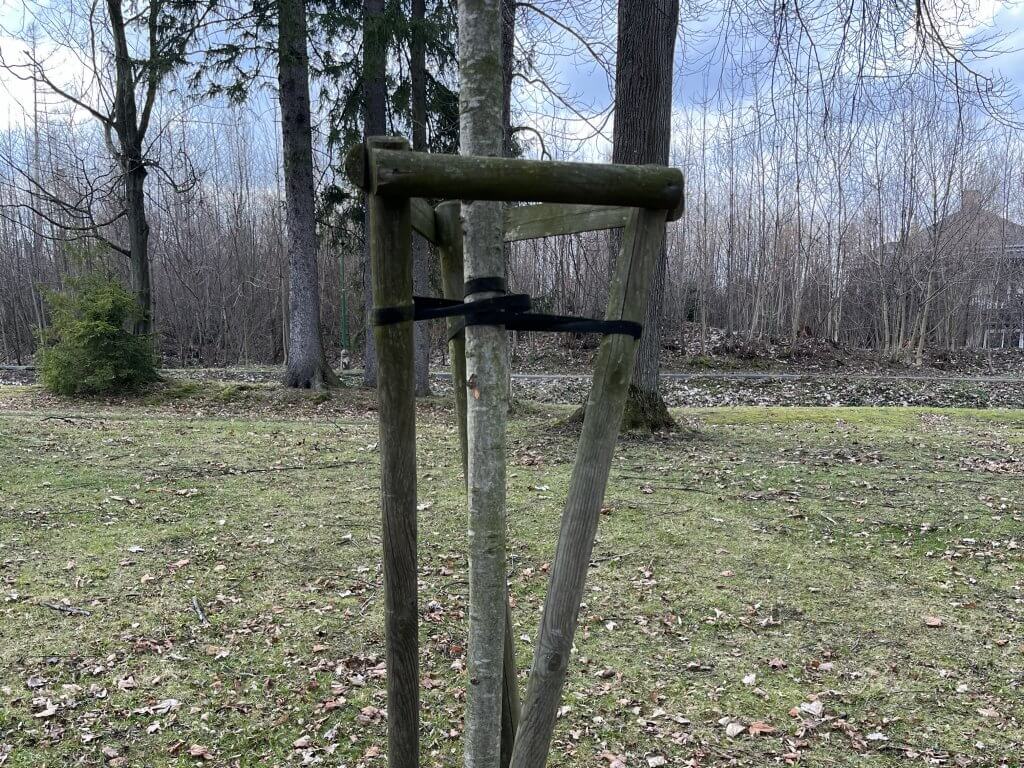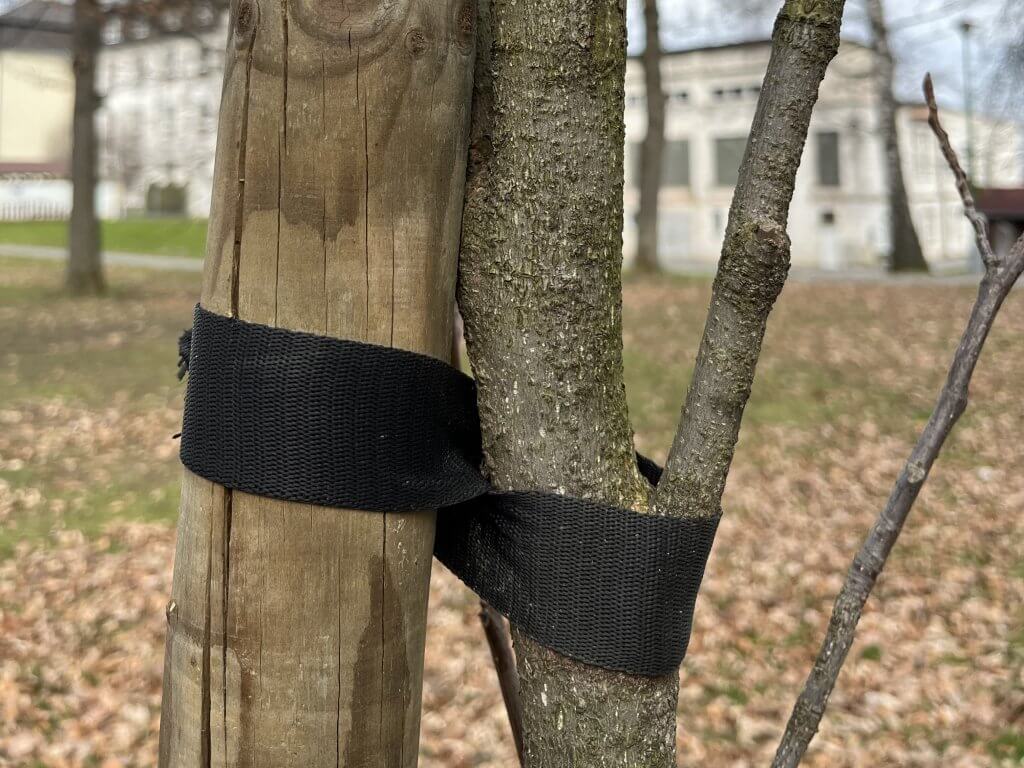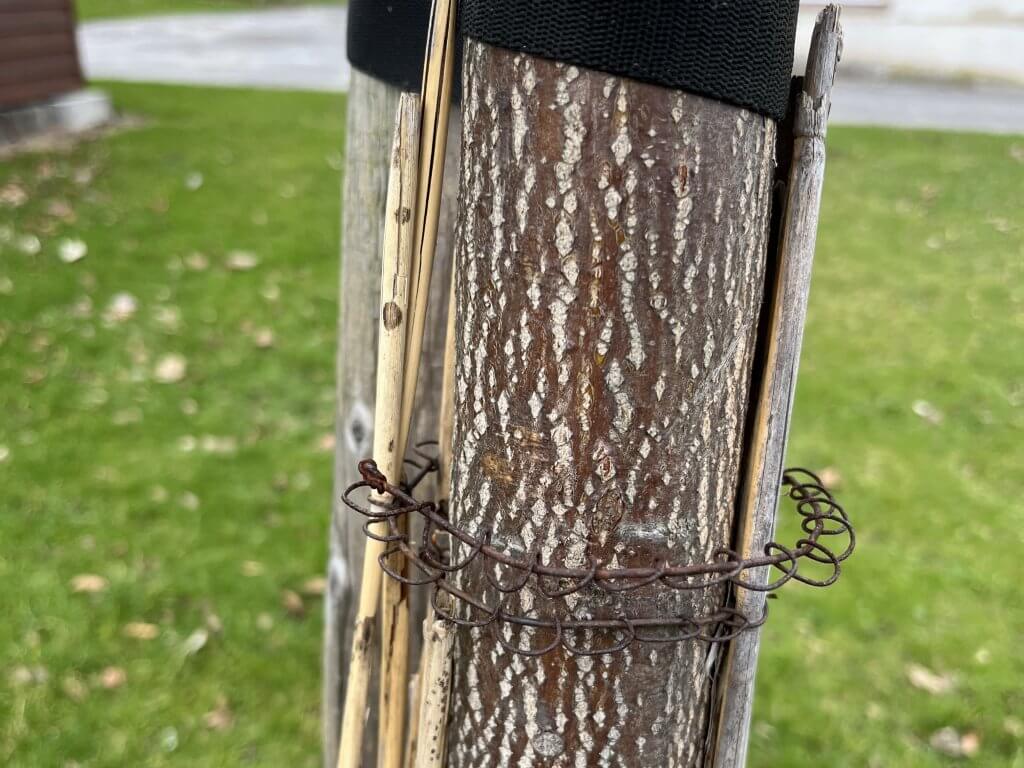Students and academics involved in the Arboriculture study programme at the Faculty of Forestry and Wood Technology of Mendel University (FFWT MENDELU) have inspected around six thousand trees in urban areas and across landscapes throughout the Czech Republic over the course of four years to collect data on the sustainability of tree planting in urban agglomerations. The data revealed that post-planting care is essential for trees to reach maturity, but also that there are significant differences across the country in the care given to trees planted in urban and rural areas. The researchers found discrepancies of up to several dozen percent in terms of both the perspective and the mortality of these trees. The survey will continue in the coming years.
Experts from the Department of Forest Conservation and Wildlife Management have offered students in the Arboriculture programme around 15 topics for bachelor’s and master’s theses since 2000, with a unified goal: to locate 400 newly planted trees and gather as much historical data as possible, such as when, by whom, and how the trees were planted, and then evaluate their current condition and compare it with the level of post-planting care.
“One of the goals was to assess the importance of post-planting care. If we take it to the extreme, we looked at whether the tree was planted and then forgotten, left to its own fate, or whether it was properly cared for, watered, regularly pruned, possibly even fertilized, and whether the trunk was protected, and so on. Another aspect we focused on was the mortality and long-term viability of the trees, meaning whether they have the potential to reach maturity. Trees perform their key functions, such as cooling and humidifying the environment, mainly after they grow larger and establish themselves in their new location, which usually takes at least 20 years after planting,” explained Jiří Rozsypálek, the initiative’s lead researcher.
In the case of avenues where proper care was provided, eight out of ten trees survived and had a promising future. In contrast, in avenues without care, six to seven trees were typically either unviable or dead, with only two to three trees being viable.



According to Jiří Rozsypálek, a common and critical mistake in the care of trees planted in landscapes is the failure to recognize that a purchased avenue tree from a nursery is not a finished product: “This is a tree that requires further intensive care, whether it be pruning, watering, or protection against diseases and pests. The crown it has when purchased, which looks nice and green, is what we call a temporary crown, one that I will completely remove within 10 to 15 years of the tree’s life in that location. In cities, we often need trees to have a so-called clear stem height, which is two to four meters,” the arborist pointed out.
For the successful life of a planted tree, arborists emphasize the need for regular formative pruning so the tree can survive in an urban environment long-term without obstructing vehicles, pedestrians, or infrastructure. Given the current climate change, they place equal emphasis on irrigation: “We experience extreme droughts, and trees need to be watered, but not year-round, only during dry periods. It is better to water more heavily but less frequently, meaning it is preferable to pour 100 to 150 litres of water at a two-week interval rather than five litres every two days,” the researcher emphasized.
The FFWT experts presented the collected data on the condition of trees in urban and rural environments this year at the annual meeting of the Partnership Foundation, attended by Minister of the Environment Petr Hladík, representatives of the Nature Conservation Agency, and other organizations. “Up until now, most grant programmes have focused on tree planting. Thanks to the data we were able to collect and present here, we were promised that this practice will begin to change, and that grants will increasingly focus on the care of planted trees,” Rozsypálek concluded.
Contact for further information:
Ing. Jiří Rozsypálek, Ph.D., Department of Forest Conservation and Wildlife Management, FFWT MENDELU, +420 545 134 184, jiri.rozsypalek@mendelu.cz
Featured photo: Inappropriately selected species for planting, dying due to severe infection by the pathogenic fungus Hymenoscyphus fraxineus.
More news
-
Mendel University in Brno is the main coordinator of an international project focused on the protection and conservation of narrow-leaved ash (Fraxinus angustifolia), a key tree species in the floodplain forests of Central and Southern Europe.…29. 12. 2025
-
MENDELU coordinates activities for biodiversity conservation and sustainable…
The Faculty of AgriSciences and the Faculty of Forestry and Wood Technology at MENDELU are coordinating an international project in the Amazon that contributes to biodiversity conservation, sustainable management, and improving quality of life.…16. 12. 2025 -
CZELO celebrates 20 years of supporting Czech science and education in Europe
For two decades, the Czech Liaison Office for Education and Research in Brussels (CZELO) has been supporting Czech institutions, researchers, and students in engaging with European programmes in education, science, and innovation. At the…9. 10. 2025 -
Scientific expedition in Mongolia: new butterfly discoveries and warning signs…
Experts from Mendel University, in collaboration with colleagues from other scientific institutions, conducted biodiversity mapping during a three-week summer stay in Mongolia, focusing on the southwestern part of the country, the Gobi Altai region…28. 8. 2025 -
Coffee cultivation has a poor future due to climate change, agroforestry system…
Globally, coffee provides a livelihood for 125 million people. But forecasting models show that its cultivation has a poor future due to climate change. Sites suitable for growing Coffea arabica are predicted to decline dramatically. In that case,…4. 8. 2025 -
A new publication on biodiversity of the floodplain landscape in the…
Ecological Changes and Biodiversity of the Floodplain Landscape in the Morava–Dyje Confluence Area is the title of a book that will be published in the second half of 2025. It is the result of the work of a broad spectrum of experts specializing in…28. 7. 2025 -
EuAsiaN-ROOT Project Unveils Collaborative Research on Tree-Root-Mycorrhizal…
The Horizon Europe project, Eurasian Network for Collaborative Research on Tree-Root-Mycorrhizal-Pathogen Interactions in Forest Soils (EuAsiaN-ROOT), coordinated by the Faculty of Forestry and Wood Technology, aims to provide a deeper…24. 6. 2025 -
Five Female Wolves Fitted with GPS Collars in the Beskydy and Javorníky…
Researchers from the Faculty of Forestry and Wood Technology at Mendel University in Brno have successfully captured and fitted GPS telemetry collars on five female wolves in the Beskydy and Javorníky Mountains over the past two years. These…28. 5. 2025 -
FFWT launches unique data collection on forest ecosystem functioning in MENDELU…
The Department of Forest Ecology at the Faculty of Forestry and Wood Technology of Mendel University in Brno (FFWT MENDELU), in cooperation with the Masaryk Forest Training Enterprise at Křtiny (ŠLP Křtiny), has launched monitoring of selected…23. 5. 2025 -
Professor Vladimír Tesař on the 30th anniversary of Pro Silva Bohemica: focus…
The Faculty of Forestry and Wood Technology and other stakeholders commemorated the thirtieth anniversary of Pro Silva Bohemica, an association of foresters dedicated to promoting close-to-nature forest management. Professor Emeritus Vladimír Tesař…9. 5. 2025